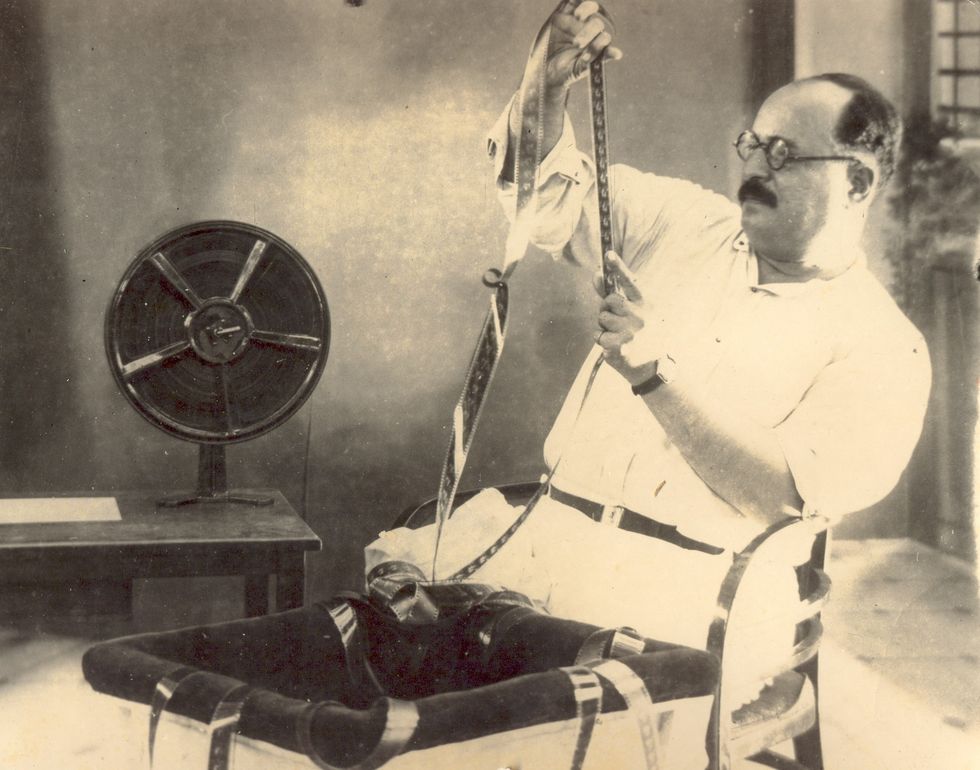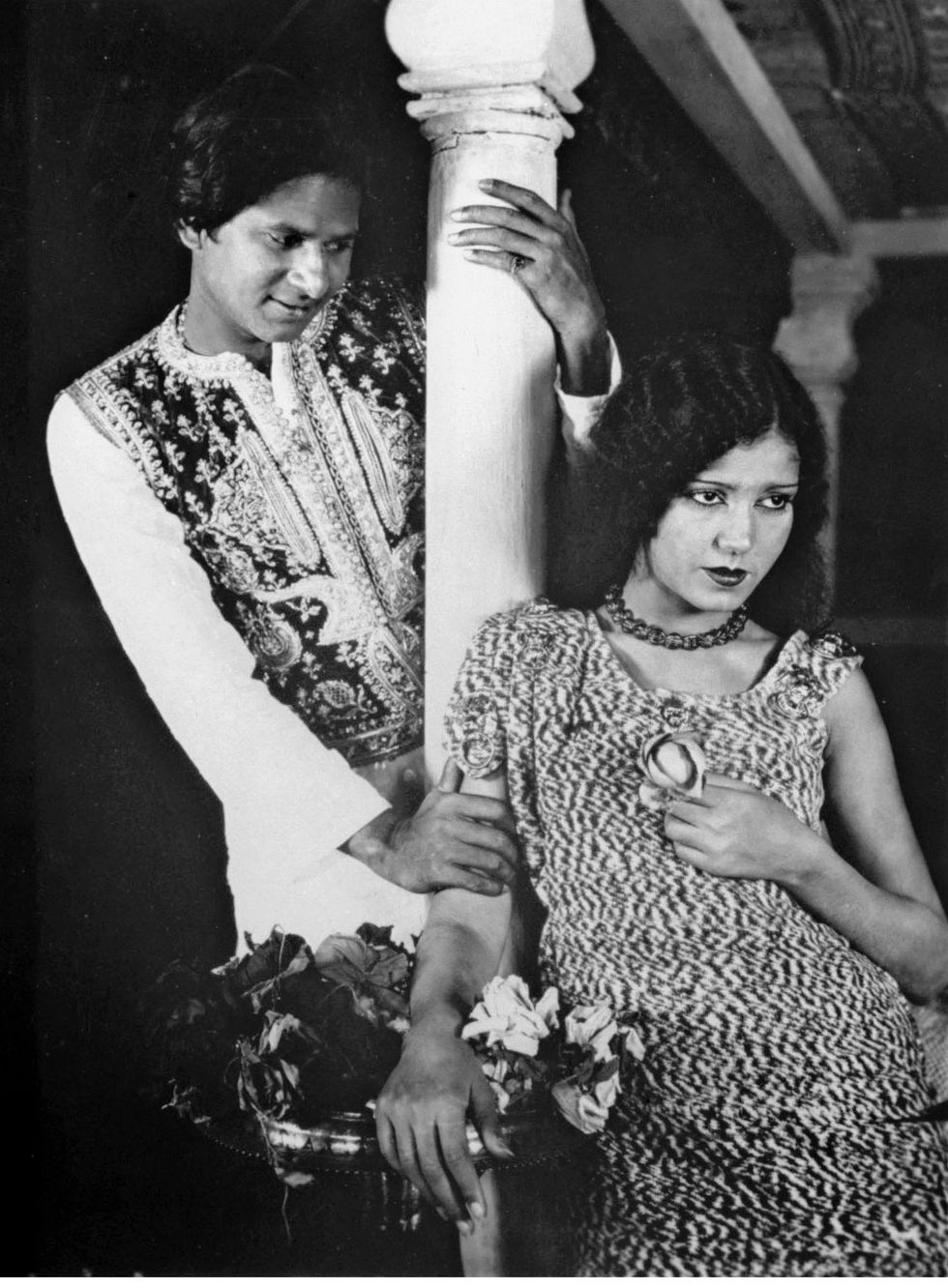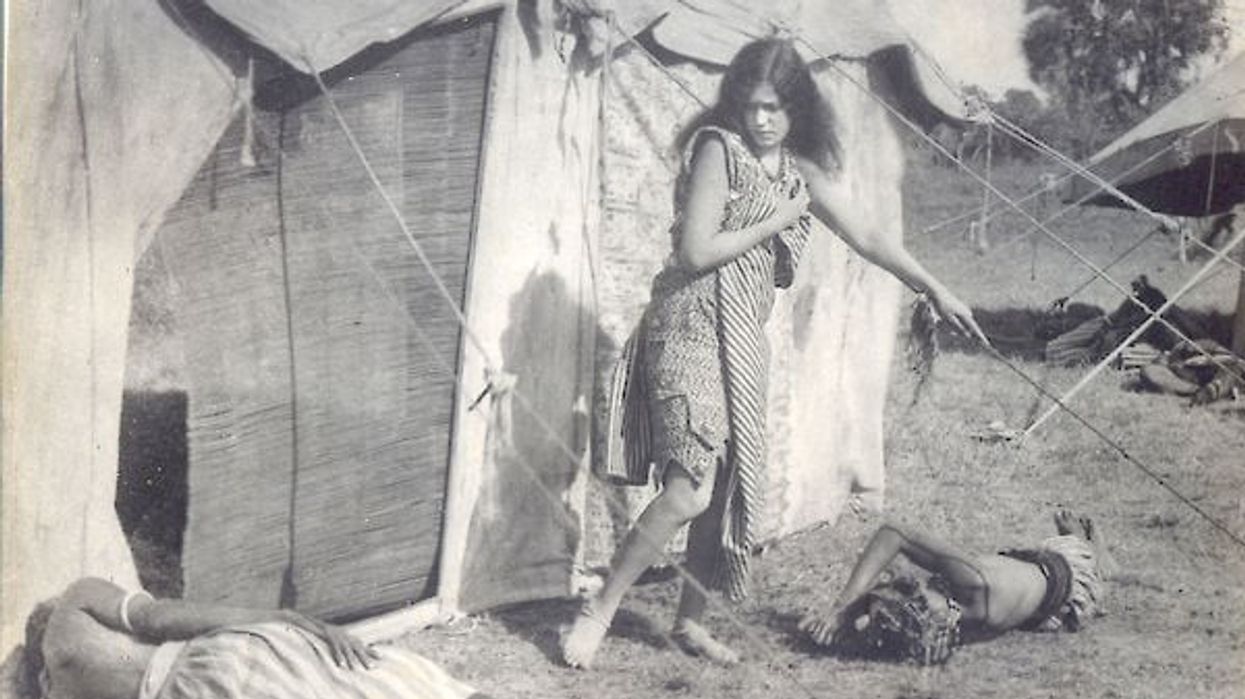DIRECTOR ARDESHIR IRANI’S IMPORTANT FILM CELEBRATES ITS 90TH ANNIVERSARY THIS MONTH
by ASJAD NAZIR
MARCH 14 marks the 90th anniversary of Indian cinema’s first talkie Alam Ara.
When the film released in 1931 it completely transformed Bollywood forever and laid the foundation for the Indian musical, as we know it today. One of the most important movies of the 20th century left a remarkable legacy, which can be seen in commercial Indian cinema today.
That extraordinary journey led towards cinema in the sub-continent changing forever and began decades earlier with a young man becoming captivated by moving pictures.
Born in 1886, Ardeshir Irani went from co-running a cinema in a tent and then a theatre, as a teenager, to producing his first silent feature film Nala Damayanti in 1920. That first success led to more productions, including under the Majestic Films banner. By the time he founded his studio Imperial Films in 1925, Irani was a huge power player in Indian cinema and entertaining audiences with big screen silent releases.
Meanwhile, in 1927 Hollywood’s first talkie The Jazz Singer became a blockbuster hit and signalled a death of the flourishing silent cinema industry. The following year, Hollywood talkie Showboat screened at the Excelsior cinema in Bombay, India, and one of the audience members was Ardeshir Irani. This inspired the producer-director to make India’s first talkie and by 1929 his ambitious plan had begun to take shape.
Firstly, Irani had to learn about how talkies were made and secondly, he had to keep the plan a top-secret, so as not to alert rival studios. He would adapt the stage play Alam Ara by local dramatist Joseph David and turn it into a historical epic about the daughter of a banished queen, brought up by nomads, who returns to the palace to free her father. He decided to make the movie in Hindi so it would reach the widest possible audience.

Young aspiring hopeful Mehboob Khan was considered for the male lead and was overlooked as Irani wanted a major name. Mehboob Khan would later become a massively successful filmmaker, delivering record-breaking blockbusters like Andaz (1949), Aan (1952) and Bollywood’s first Oscar-nominated film Mother India (1957).
Irani instead zeroed in on reigning male swashbuckling superstar Master Vithal, who was called the Douglas Fairbanks of India. Vithal was so eager to be part of the project that he broke an existing contract with a rival studio. This led to a high-profile court case and coming to their aid was leading legal expert Muhammad Ali Jinnah, who would later be the founding father of Pakistan. Even though the odds were against them, they won the case and Bollywood’s highest paid leading man was signed for the film. It was only after production commenced that Irani realised magnificent silent screen star Master Vithal had very poor Hindi, but it was too late, so they rewrote the screenplay, and he spent a majority of Alam Ara in a coma.

Irani wanted to sign Bollywood’s reigning silent screen queen Sulochana for the title role, but she couldn’t speak Hindi and he instead signed her fierce rival Zubeida. This was a devastating blow for Bollywood’s biggest silent screen star and signalled the end of Sulochana’s career at the top. Another key member of the cast was relative newcomer Prithviraj Kapoor, who would later become a huge star and found a powerful film dynasty, which is now well into its fourth generation, with his great-grandchildren Kareena Kapoor Khan and Ranbir Kapoor. The cast also included fresh-faced newcomer LV Prasad, who would go onto become a great legend and win Indian cinema’s highest honour The Dadasaheb Phalke Award in 1982.
Irani would have to learn all aspects of sound himself as foreign technicians were too expensive. As there were no soundproof stages, the film with a strong cast of 78 was shot mostly at night between 1am-4am, with large microphones strategically hidden. This would invent the Bollywood night shoot, which would dominate the first decade of talkies.
The film had seven songs and all were performed live in front of the camera by the cast, with only a harmonium and tabla being played behind camera. The film’s opening number De De Kuda Ke Naam Pe Pyaare became the first Bollywood song in history.
It would cost Rs 40,000 to make the entire film and what would normally take a month, took four months to shoot. When Alam Ara was finally released no one knew what to expect and only eye-catching posters were used for publicity, but they were enough. There was a massive stampede to see the film and tickets were exchanging price for upto 20 times the face value. The film broke box office records and ran for eight weeks in Bombay, before being toured around the country. The huge success not only ended the silent era but launched the musical, which laid the template for all Bollywood films that would follow.
Sadly, no copies of the film remain and although lost forever, its legacy remains. Google celebrated the 80th anniversary of the film in 2011 with a Google Doodle and this year, many globally will celebrate 90 years since the film changed everything.




